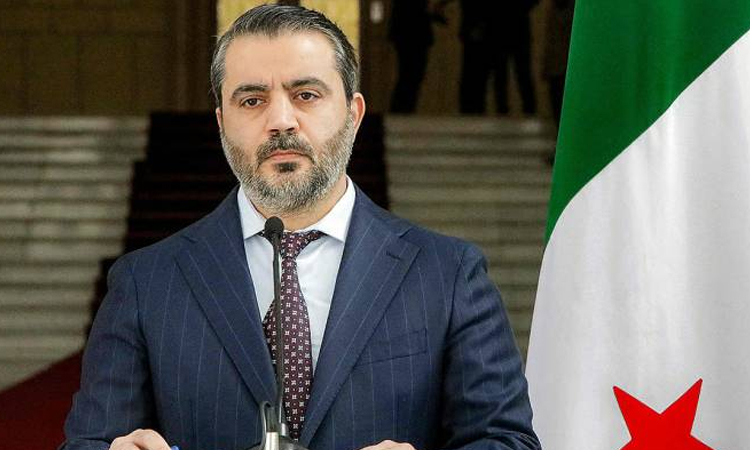News Flash

DAMASCUS, July 4, 2025 (BSS/AFP) - Syria said on Friday it was willing to
cooperate with the United States to reimplement the 1974 disengagement
agreement with Israel, which created a UN-patrolled buffer zone separating
the two countries' forces.
In a statement after a phone call with his US counterpart Marco Rubio, Syrian
Foreign Minister Asaad al-Shaibani expressed Damascus's "aspiration to
cooperate with the United States to return to the 1974 disengagement
agreement".
Washington has been driving diplomatic efforts towards a normalisation deal
between Syria and Israel, with envoy Thomas Barrack saying last week that
peace between the two was now needed.
Speaking to The New York Times, Barrack confirmed this week that Syria and
Israel were engaging in "meaningful" US-brokered talks to end their conflict.
Following the toppling of longtime Syrian ruler Bashar al-Assad in December,
Israel carried out hundreds of strikes on Syria and deployed its troops into
the Golan Heights buffer zone, which the UN considered a violation of the
agreement.
Israel has also launched hundreds of air strikes on military targets in Syria
and carried out incursions deeper into the country's south.
Syria's new authorities refrained from responding to the attacks and admitted
to holding indirect talks with Israel to reduce tensions.
The two countries have no official diplomatic relations, with Syria not
recognising Israel and the two nations technically at war since 1948.
- 'Iranian threat' -
Israel conquered around two-thirds of the Golan Heights from Syria during the
1967 Arab-Israeli war, before annexing it in 1981 in a move not recognised by
any country other than the United States.
A year after the 1973 war, the two reached an agreement on a disengagement
line.
As part of the deal, an 80-kilometre-long (50-mile) United Nations-patrolled
buffer zone was created to the east of Israeli-occupied territory, separating
it from the Syrian-controlled side.
Israeli Foreign Minister Gideon Saar said on Monday that his country had an
"interest" in normalising ties with Syria and neighbouring Lebanon.
He added, however, that the Golan Heights "will remain part of the State of
Israel" under any future peace agreement.
Syrian state media reported on Wednesday that "statements concerning signing
a peace agreement with the Israeli occupation at this time are considered
premature".
During the call with Rubio, Shaibani received a formal invitation "to visit
Washington as soon as possible", according to the foreign ministry's
statement.
The two men also discussed Syrian Interim President Ahmed al-Sharaa's
participation in the upcoming United Nations General Assembly, which the UN
did not confirm.
Shaibani previously visited the UN headquarters in New York in April, where
he raised Syria's new flag.
He and Rubio talked about "the Iranian threat in Syria", with Damascus
expressing "its growing concern over Iran's attempts to interfere in Syrian
affairs, especially following the strikes that recently targeted Tehran",
referring to last month's Iran-Israel war.
Tehran used to enjoy significant political and military influence in Syria
and provided key support for Assad during the Syrian civil war that erupted
in 2011.